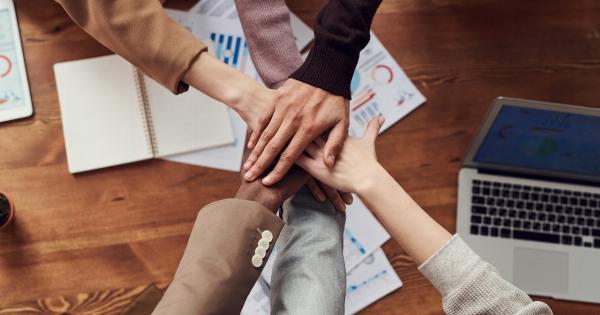Erectile dysfunction (ED) can impact not only the individual experiencing it but also their partner. The inability to achieve or maintain an erection during sexual activity can be frustrating and stressful for both partners.
However, there are several ways that partners can support each other and work together to address ED.
1. Encourage communication
The first step in supporting each other through ED is to encourage communication.
Many men may feel embarrassed or ashamed about their inability to achieve or maintain an erection, but it’s important to create a safe and non-judgmental space for them to talk about it. Partners can offer reassurance and remind each other that ED is a common issue that can be treated.
2. Consider counseling
Sex therapy or counseling can be beneficial for both partners when dealing with ED.
A therapist can provide useful information about the physical and psychological factors that may be contributing to the issue and suggest techniques that can help improve sexual function. Counseling can also help partners navigate any emotional or relationship challenges that arise as a result of ED.
3. Start with non-sexual touch
When sexual activity is difficult or impossible, partners can still maintain physical intimacy through non-sexual touch. This can include cuddling, holding hands, or giving each other massages.
Touch can help reduce stress and strengthen the emotional bond between partners.
4. Explore alternative forms of sexual activity
Even if traditional sexual activity is not possible, partners can still maintain an active and fulfilling sex life. This may include exploring different types of sexual activity, such as oral sex or mutual masturbation.
Partners can also use sex toys or other aids to enhance their sexual experience.
5. Consider medication
There are several medications available that can help treat ED, such as sildenafil (Viagra), tadalafil (Cialis), and vardenafil (Levitra). These drugs work by increasing blood flow to the penis and can help men achieve and maintain an erection.
However, it’s important to consult with a healthcare provider before using any medication for ED, as they can have potential side effects and may interact with other medications.
6. Make lifestyle changes
Lifestyle changes can also help improve sexual function for both partners. This may include adopting a healthier diet, exercising regularly, quitting smoking, and reducing alcohol consumption.
Partners can work together to establish healthy habits and support each other in achieving their goals.
7. Be patient and understanding
Dealing with ED can be a frustrating and emotional experience for both partners. It’s important to be patient and understanding with each other and take the time to address the issue together.
Partners should remember that ED is a common issue that many couples face, and there are effective treatments available.
8. Seek medical advice
If ED persists, it’s important to seek medical advice. A healthcare provider can evaluate the underlying causes of the issue and recommend appropriate treatment.
They can also provide useful information and guidance for both partners on how to maintain a fulfilling sex life.
9. Focus on pleasure, not performance
When dealing with ED, it’s important to shift the focus from performance to pleasure. Partners can focus on exploring each other’s bodies, discovering new erogenous zones, and enjoying the intimacy of physical touch.
This can help reduce stress and anxiety and increase feelings of comfort and closeness.
10. Practice self-care
Both partners should prioritize self-care when dealing with ED. This may include seeking support from friends or family, engaging in stress-reducing activities like yoga or meditation, and taking time for personal hobbies or interests.
Practicing self-care can help reduce stress and improve overall emotional well-being.





























